ESP32-S3-Nano - Development Board
Product Link
Introduction
ESP32-S3-Nano adopts ESP32-S3R8 as the main controller, compatible with Arduino Nano ESP32, and is suitable for applications such as IoT or MicroPython. Compact in size while with powerful performance, it is applicable for the standalone project.
Features
Adopting ESP32-S3R8 as the main controller with Xtensa® 32-bit LX7 dual-core processor, capable of running at 240 MHz
Integrated 512KB SRAM, 384KB ROM, 8MB PSRAM, 16MB Flash memory.
Integrated 2.4GHz Wi-Fi and Bluetooth LE dual-mode wireless communication, with superior RF performance.
Supports seamless switching between Arduino and Micro Python programming, offering greater flexibility.
Compatible with Arduino IoT Cloud, enabling users to monitor and control their projects from anywhere with Arduino Internet of Things (IoT) cloud applications.
Supports HID (Human Interface Device), emulating Human Interface Devices such as keyboards or mice via USB port for easier interaction with PC.
Version Options
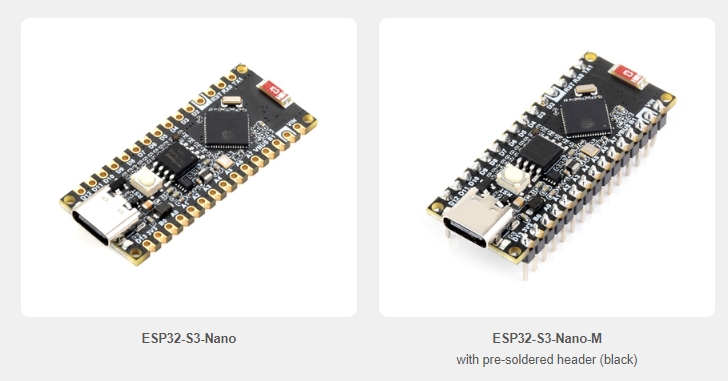
Product Parameters Comparison

Hardware Description
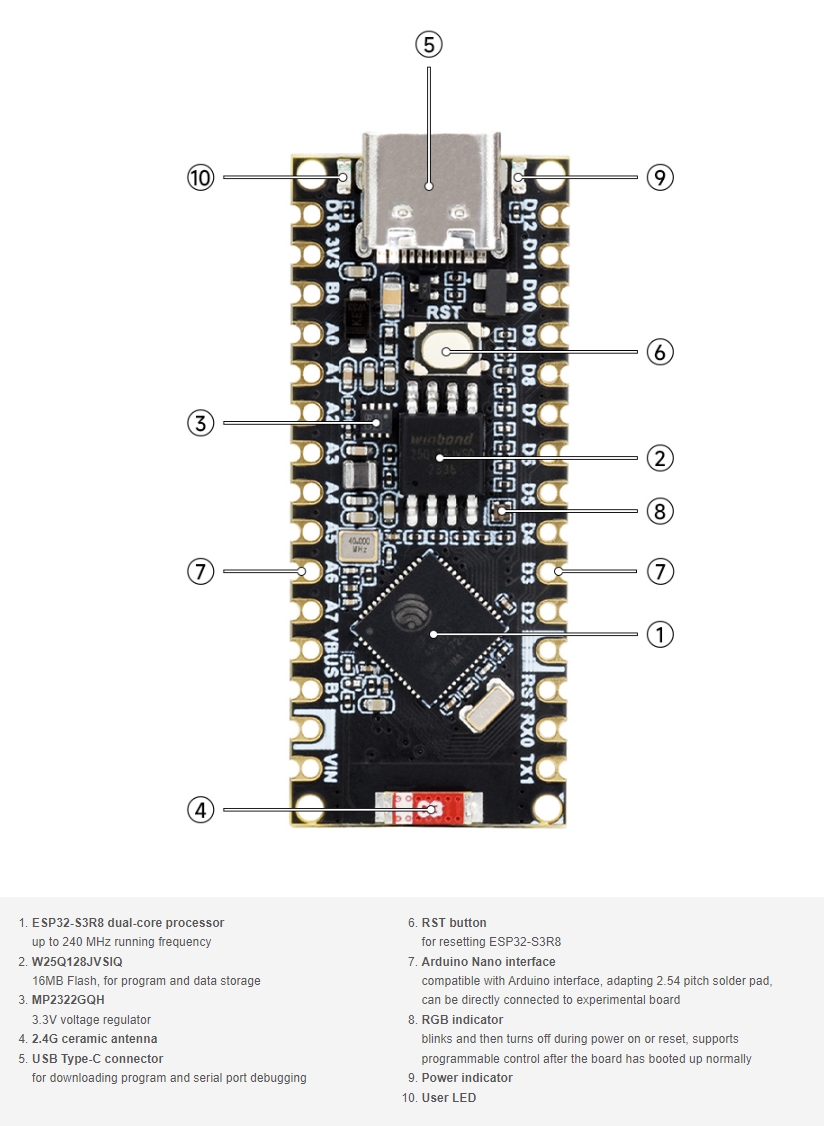
Pinout Definition
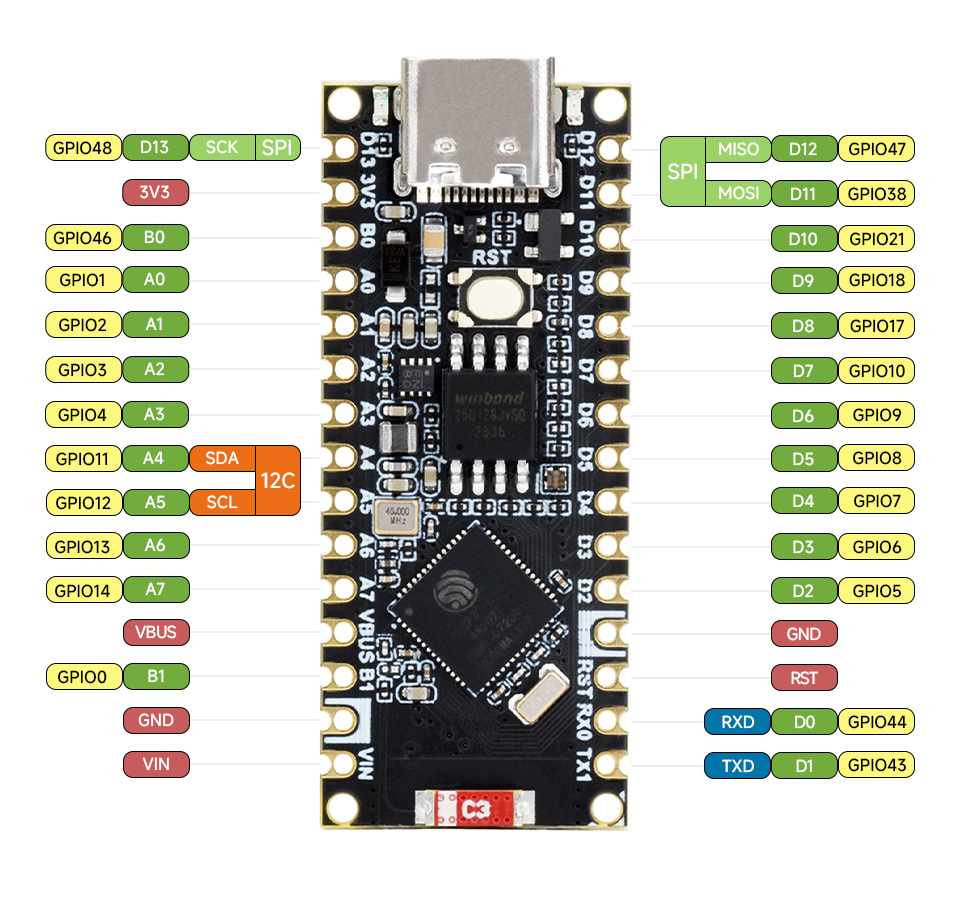
Dimensions
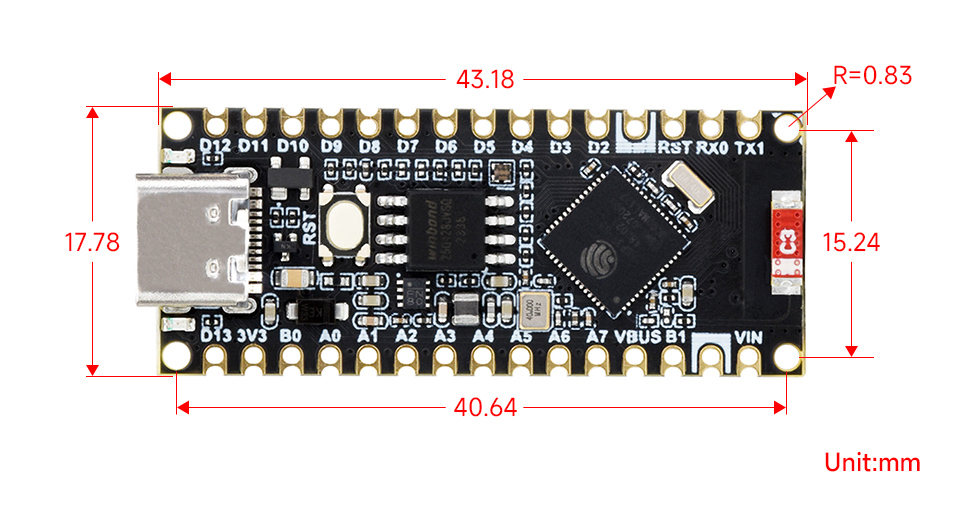
User Guide
Environment Setting
The software framework for ESP32 series development boards is mature, and you can use CircuitPython, MicroPython and C/C++ (Arduino, ESP-IDF) for rapid prototyping of product development. Here's a brief introduction to these three development approaches:
CircuitPython is a programming language designed to simplify coding tests and learning on low-cost microcontroller boards. It is an open-source derivative of the MicroPython programming language, primarily aimed at students and beginners. CircuitPython development and maintenance are supported by Adafruit Industries.
You can refer to development documentation for CircuitPython-related applications development.
The GitHub library for CircuitPython allows for recompilation for custom development.
MicroPython is an efficient implementation of the Python 3 programming language. It includes a small subset of the Python standard library and has been optimized to run on microcontrollers and resource-constrained environments.
You can refer to development documentation for MicroPython-related application development.
The GitHub library for MicroPython allows for recompilation for custom development.
The official libraries and support from Espressif Systems for C/C++ development make it convenient for rapid installation.
Arduino development manual for ESP32 series
ESP-IDF development manual for ESP32 series
The environment is set up under Windows 10, users can choose to use Arduino or Visual Studio Code (ESP-IDF) as IDE for development. For Mac/Linux OS users please refer to the official instructions.
Arduino
Install Arduino IDE
The following development system is Windows.
1. Open the official software download webpage, and according to the corresponding system and system bits to download.
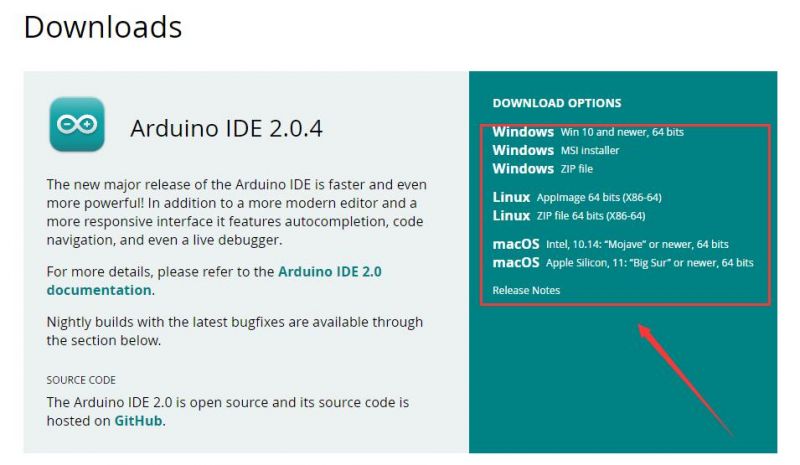
2. You can choose "Just Download", or "Contribute & Download".
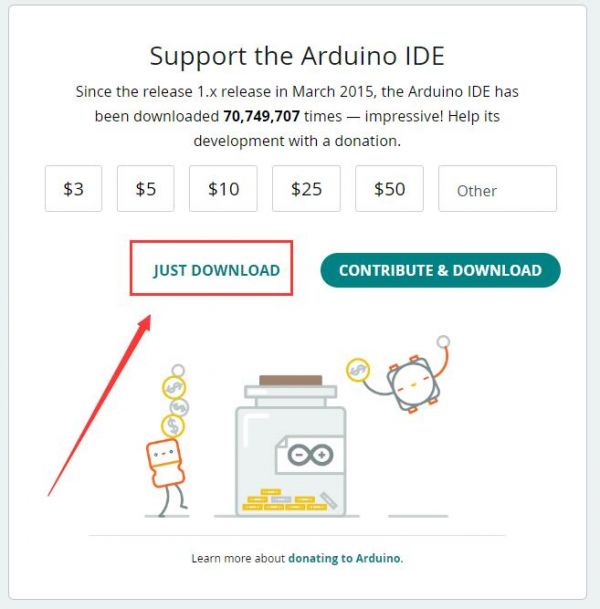
3. Run to install the program and install it all by default.
Install Nano ESP32 Package
Install Nano ESP32: Open Boards Manger -> Search "Nano ESP32" and install the latest version (or the version to use).
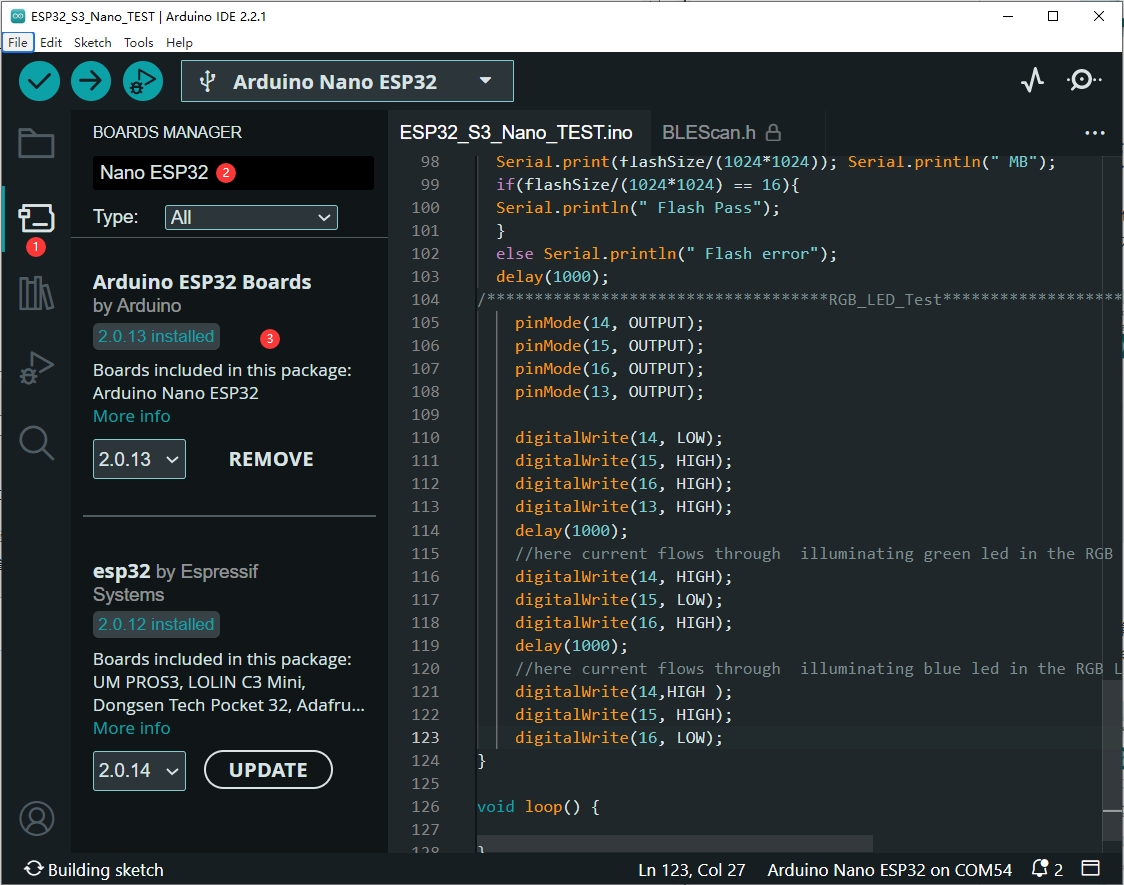
Create Example
The following example is about how to make LED blinking. (File -> examples -> Blink under 01.Basics)
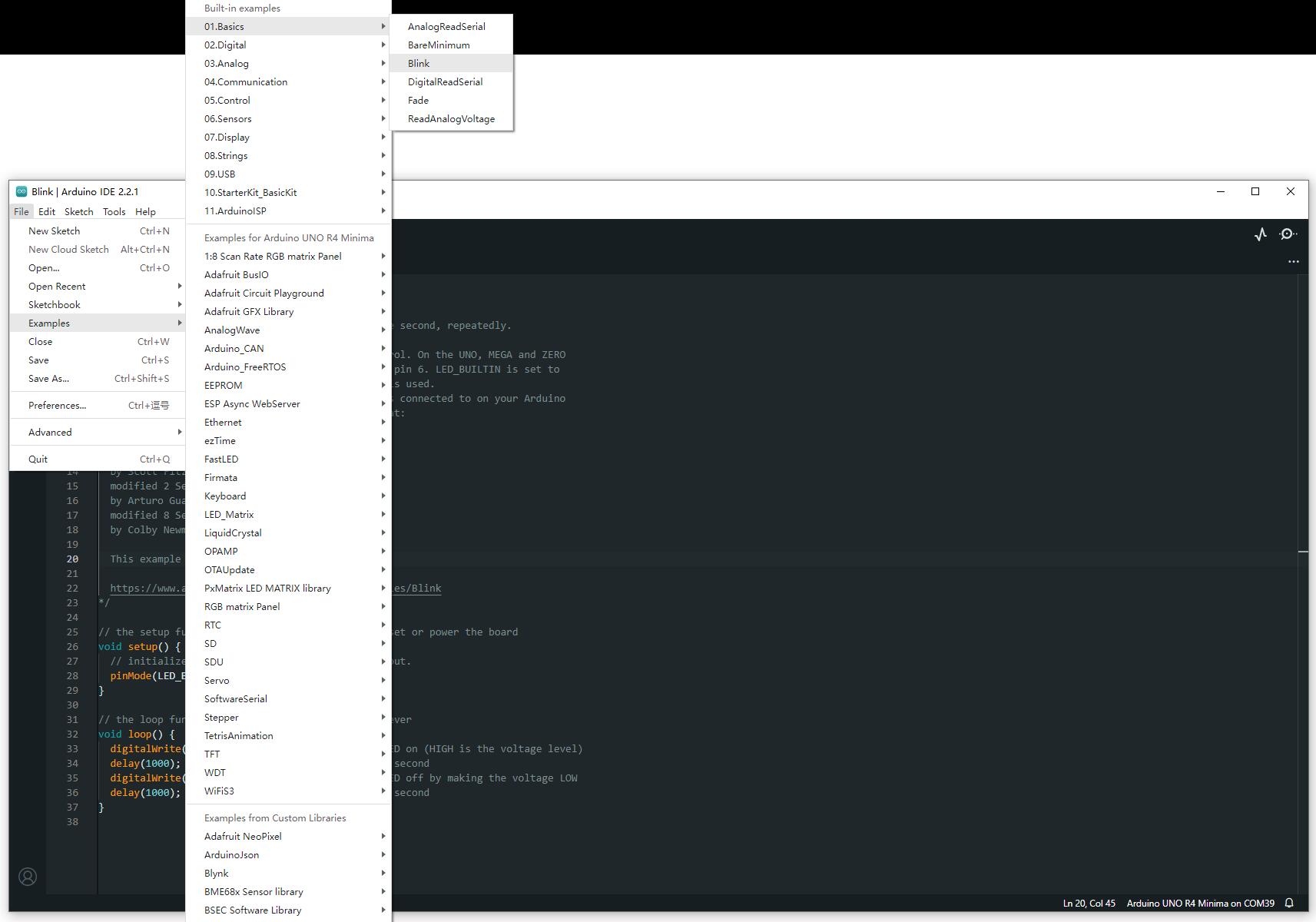
Select the development board and COM ports.
Search "Nano ESP32", select "Arduino Nano ESP32", and then click on OK (the following picture is for reference only, you need to select the corresponding board.)
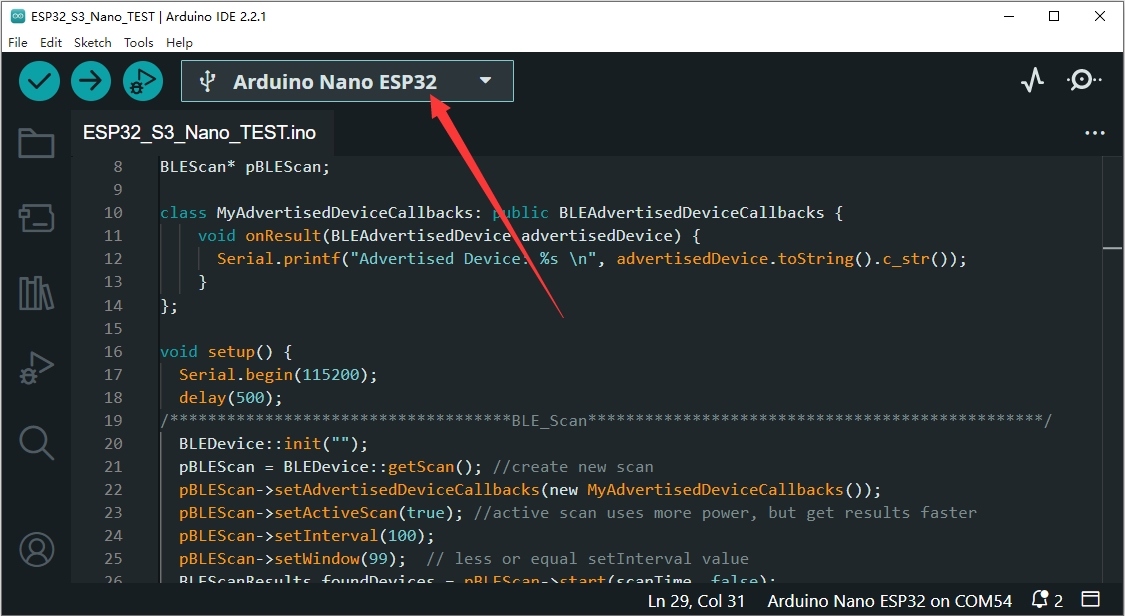

Click ✓ in the menu bar to compile and → to burn the compiled demo to the board.
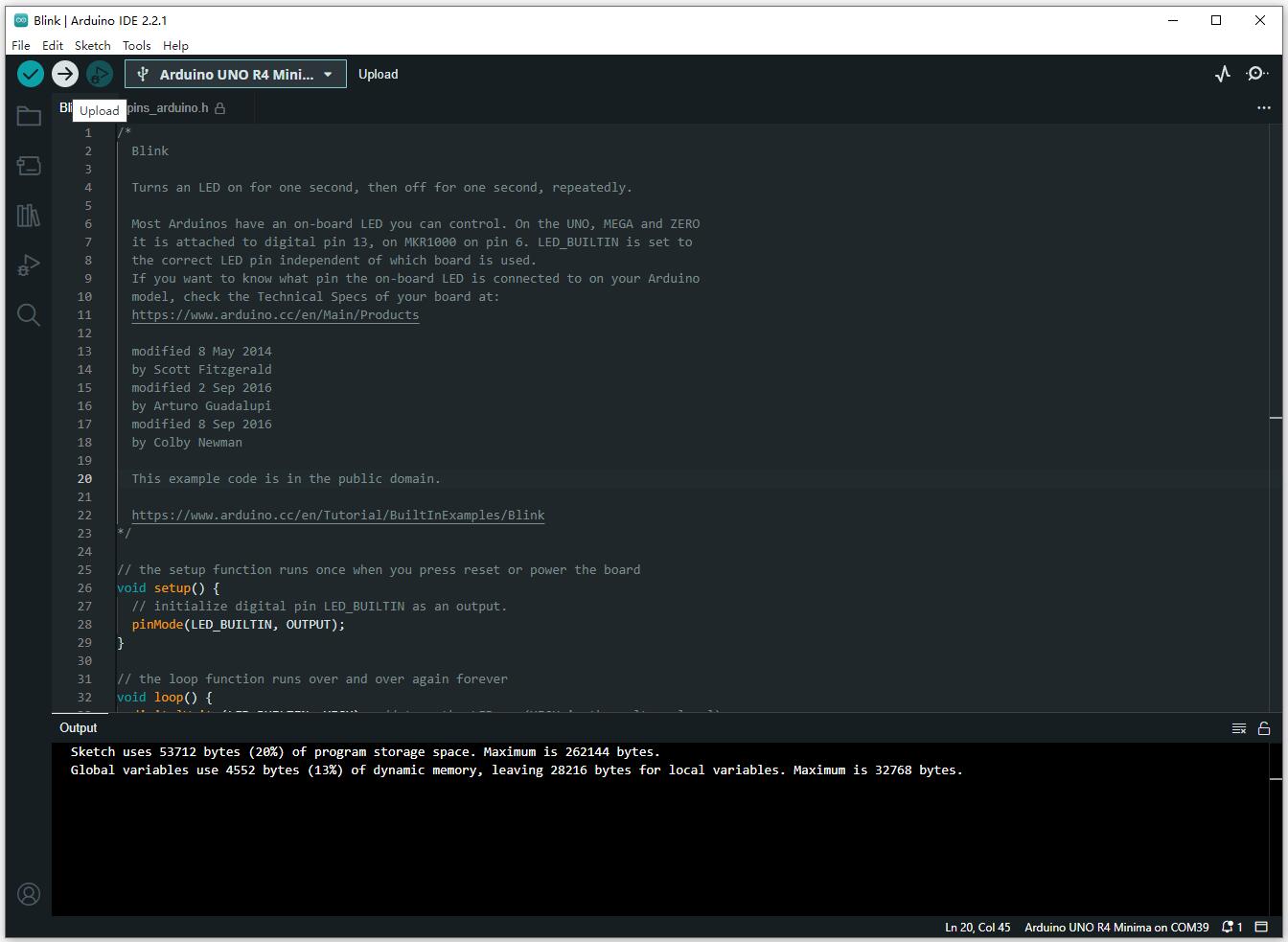
Open Example
Open the existing example, it is easier to operate. Directly run the ".ino" demo and refer to the operation above, and select the corresponding board and COM port to compile, download and burn.
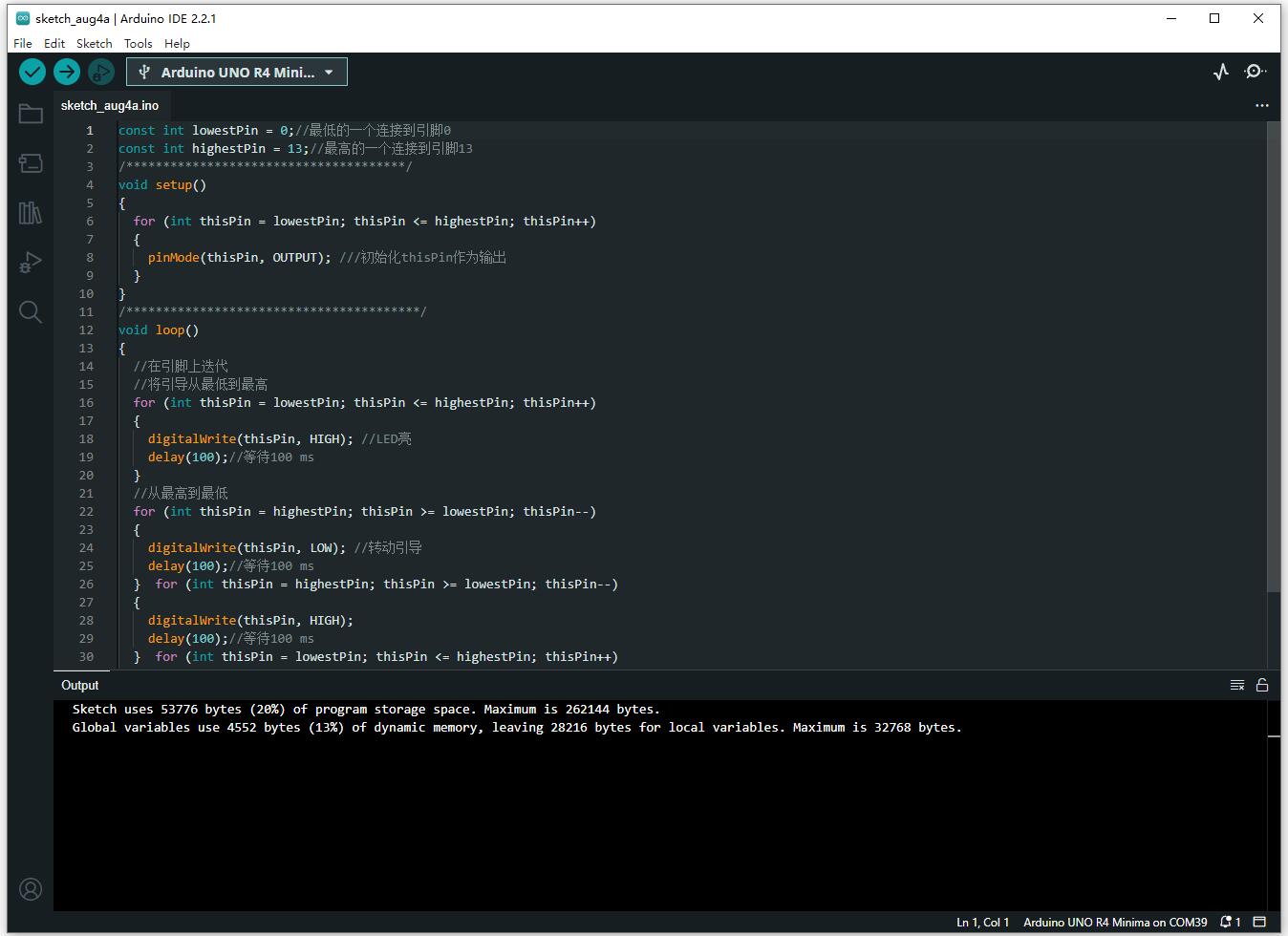
ESP32-S3-Nano opens the Arduino demo: Open File -> Examples. These demos can be directly used without other external libraries.
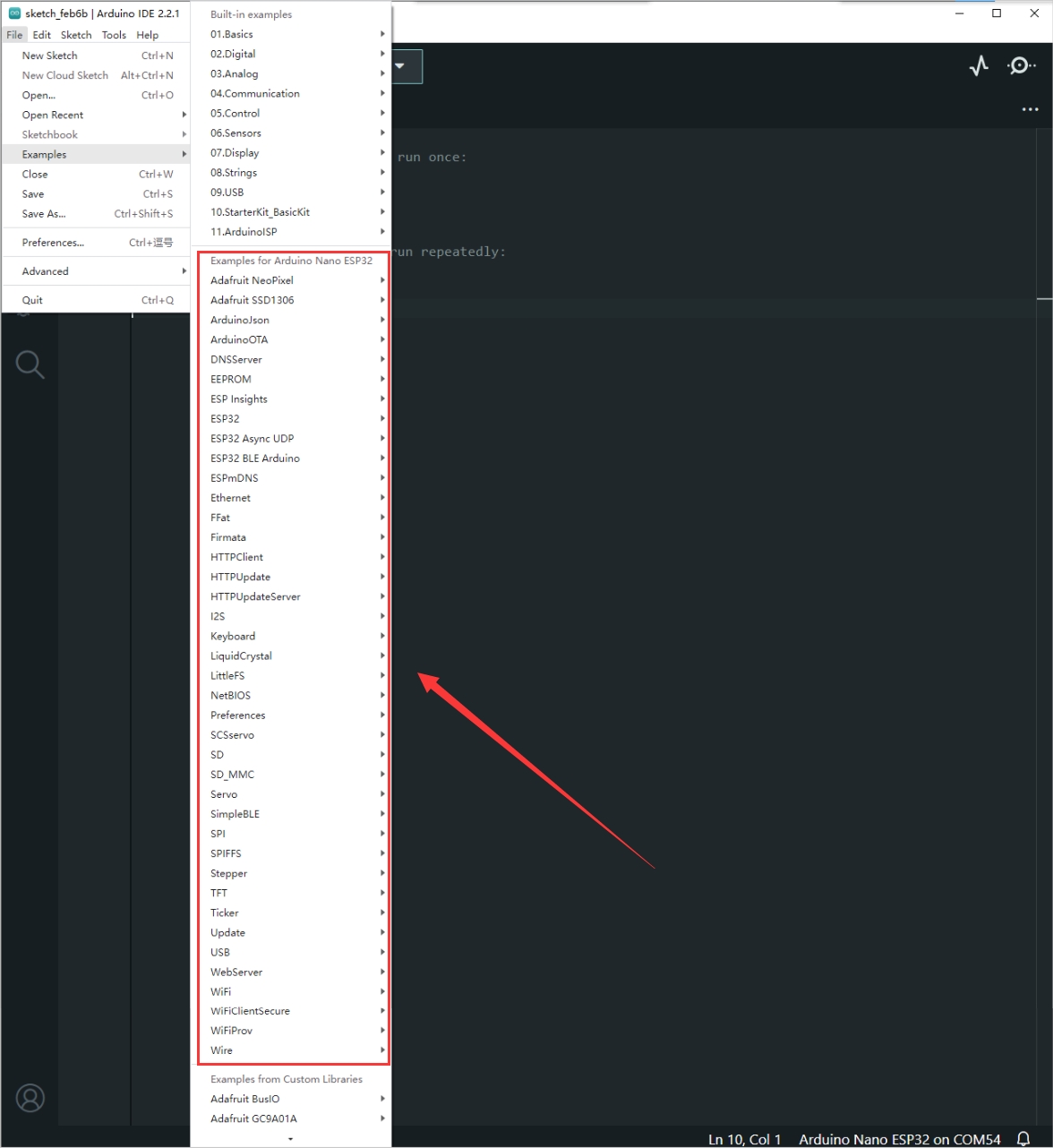
MicroPython
1. Download and install the latest Thonny IDE, open Thonny IDE -> Configure interpreter... as shown below:
 2. Press the BOOT key on the board, connect to the USB cable, and find the Device Manager or the corresponding COM port. Download or run the demo, and you can see the Hardware Description chapter for more details.
3. According to the steps below, download the online MPY firmware of the ESP32 series, and clean the Flash content of the development board before downloading, and the whole download process lasts about 1 minute.
2. Press the BOOT key on the board, connect to the USB cable, and find the Device Manager or the corresponding COM port. Download or run the demo, and you can see the Hardware Description chapter for more details.
3. According to the steps below, download the online MPY firmware of the ESP32 series, and clean the Flash content of the development board before downloading, and the whole download process lasts about 1 minute.
 4. If the Tonny IDE needs to download the local firmware, you can operate it by following the steps below. Select Step 3 or Step 4, and Step 4 is recommended.
4. If the Tonny IDE needs to download the local firmware, you can operate it by following the steps below. Select Step 3 or Step 4, and Step 4 is recommended.
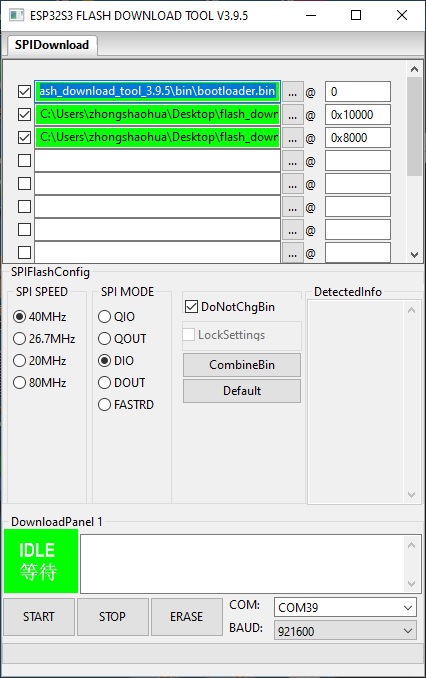 5. Please refer to MicroPython Documentation, releases note for programming.
5. Please refer to MicroPython Documentation, releases note for programming.
Sample Demo
For the Arduino example demo, please refer to arduino-esp32 or File -> examples in Arduino IDE, these examples can be used directly without external libraries.

for mpy example, you can refer to MicroPython documentation and sample demo.
Resource
Document
Demo
Software
Datasheet
Last updated
Was this helpful?
